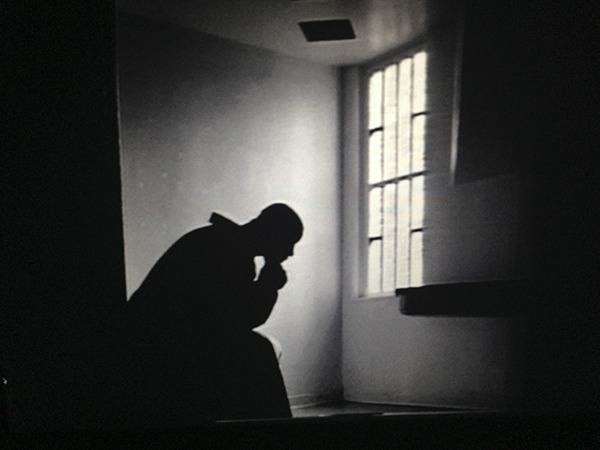Putting a drug addict in a box for six years doesn’t solve the problem, according to Matt Stafford, who went back to what he calls “shooting stuff in his arm” as soon as he got out of prison.
“I got clean because the drugs stopped working, the highs became less and less, and all that was left was negative consequences,” he said.
Stafford and five other Washington state juvenile offenders in maximum security lock-up are featured in the documentary “Minor Differences,” which will be screened at the Sea View Theater on Thursday, April 30.
This is the first in a spring film series called “Conversations” presented by Orcas Open Arts and co-sponsored by the Islands’ Sounder newspaper.
The evening begins at 6:30 p.m. with live music, soup de jour and beer and wine in the Sea View lounge, followed by the film at 7:30 p.m. After the viewing there will be a “Q&A” with two of the film’s subjects featured in this article, producer Caroline Cumming and filmmaker Heather Dew Oaksen followed by a reception for an informal discussion about how the community can help at-risk youth. There will be representatives from the mentorship program at the Funhouse, Orcas Family Connections and the Orcas Island School District.
Tickets are available at Darvill’s and online at http://www.brownpapertickets.com/event/1476362. Adults are $10, $8 seniors and students are free.
When making the film, Oaksen hoped the stories from the young men she interviewed would inspire people to make positive changes. Since moving to Orcas two years ago, Oaksen has felt that this community is the perfect place to start looking at the way we deal with young people who are in trouble.
“This community has so much heart,” she said. “We could do this successfully.”
The film has been used in classrooms as a way to start a dialogue with young people who are struggling with difficult issues. Part of the film’s power comes from Oaksen’s follows-up with the same men 18 years later. The audience is able to watch the boys grow to men as they explore their inner demons. For Casey Stentz, also featured in the documentary, it represents potential light in the aftermath of a dark period in his life.
“If I went through that so someone could learn something, my loss becomes so much more bearable,” said Stentz at a recent screening of the film for Orcas Middle and High School students.
It’s clear from both men that watching themselves on a large screen going through the juvenile system and then on to prison can be taxing.
“It’s a highlight reel of your worst times,” said Stafford. “I relate little to that person … Life is an evolutionary process.”
At the school screening, a student asked what could have helped them to change their lives as juveniles. Both Stafford and Stentz said that having just one person who was a positive role model could have changed their path in life.
For Stentz, who was homeless in Seattle at a young age, selling drugs was a necessity for survival. After he went to prison he joined a carpenters union and has since worked in the industry for 17 years. He also is active in mixed martial arts, which he said provides an outlet for creative expression.
“It’s a place to get my feelings out,” he said.
For Oaksen, the 18 years working on the film made her come to the conclusion that the prison system is not working. According to her, many young offenders get into the system for minor offenses and find themselves forever trapped in a downward spiral.
“The message is let’s not lock up kids,” she said. “We need to abandon prisons.”
On her website, Oaksen asks, “What do a thief, kidnapper, two murderers and a heroin addict have in common with your child, brother, father?”
Her answer, “Take away the labels and you’ll find these imprisoned teenagers are an awful lot like people you know,” is not only the heart of the film, but at the core of her ideas on how we can change the broken system.
For more info, visit www.minordifferences.com/. Watch the Sounder for more details about the “Conversations Film Series” at Sea View Theater.



